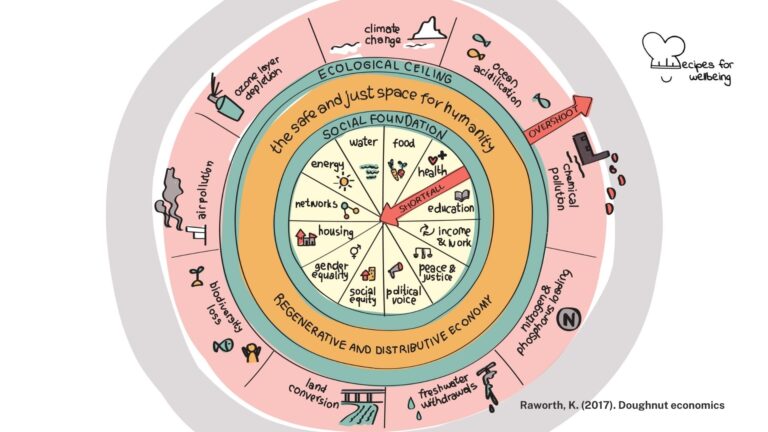We need stronger guiding principles to empower women across the world which have quantitative indicators to measure outcomes and results from initiatives that corporations put in place. I
I am a woman born into a modern Indian family that always talked about gender equality. It was most often a discussion at the dinner table, debating how companies and society at large do not treat women at the same level as their male counterparts. This forward-thinking upbringing always had me fooled that the majority of the world is equal when it comes to gender, and everything related to gender. However, as I progressed in life to become a woman myself, I realized how far we are from truly achieving gender equity. There was always subtle discrimination even within the family dynamics when it came to the way my brothers and uncles were treated as opposed to the way my sisters, my mother and I were treated. The discrimination became particularly prevalent when I began my professional career. My male counterparts were always prioritized for promotions and were always given better remuneration. It has been a rather unsettling journey to witness and fight these gender biases as well as discrimination.
However, when I chose to work on the TATA group with Ezekiel and Gamze, documenting their specific contributions towards Women Empowerment Principles (WEP), I was elated, for several reasons. Tata is a pioneer and a case study for other companies in the India and the world on working towards an equitable society. I have grown up reading about their heroic activities and initiatives to empower women from all sections of the society. I looked at the project as a tool to learn and get inspired about their achievements and future endeavours in the space.
However, the results of the study turned out to be an anti-climax. I am not suggesting that Tata group has not achieved their claims, what I am referring to the benchmark of their achievement. The purpose of this report is to highlight critically my learnings from the study and the project.
We need stronger guiding principles to empower women across the world which have quantitative indicators to measure outcomes and results from initiatives that corporations put in place.
A brief introduction to Women Empowerment Principles
Before I delve further into the case and my insights on it, it is important to throw some light on the WEPs.
UN Women and the UN Global Compact developed the Women’s Empowerment Principles (WEPs, n.d.) to advance gender parity and women’s economic participation in public and private spheres. Incorporating gender equality into corporate strategy, operations, and culture is made easier with the help of these guiding principles (UN women. n.d.). The seven tenets of women’s empowerment are as follows:
- Establish high-level corporate leadership for gender equality.
- Treat all women and men fairly at work.
- Ensure the health, safety, and well-being of all women and men workers.
- Promote education, training, and professional development for women.
- Implement enterprise development, supply chain, and marketing practices that empower women.
- Promote equality through community initiatives and advocacy.
- Measure and publicly report on progress to achieve gender equality.
Businesses that embrace and execute these Women’s Empowerment Principles can help to create a more equitable and inclusive world in which women have equal opportunity, representation, and influence in all aspects of life.
Although these guiding principles seem fairly complete, in my opinion, it misses out on three extremely important tenets that are not appropriately represented in the WEPs. The following are my recommendations to the UN Women and UN Global compact to incorporate and make them the ten commandments of Women Empowerment:
- Reduction in gender gaps in the workplace to truly promote diversity, equity and inclusion.
- Reduction in gender pay gaps across all industries and positions.
- Women in executive leadership position.
While I understand that these indirectly form a part of the seven tenets, it is increasingly important for companies to disclose their gender gaps and propose SMART goals and an appropriate strategy to achieve them transparently and quantitatively.

Tata Group, the legacy and WEP
The Tata Group has been an example of being a forward-thinking corporation for more than a century, leading the way in promoting gender equality and women’s empowerment. The Tata Group has made an unflinching commitment to gender equality and inclusive growth, and as a result, their history of empowering women has become an astonishing tale of transformation, opening up innumerable doors and improving the quality of life for countless people (A legacy of empowerment | Tata group. n.d.).
Tata’s primary concept is that empowering women is not just the right thing to do but also a necessity for a prosperous future. Using this as a guiding concept, the Tata Group has launched ground-breaking programmes in the fields of education, healthcare, skill development, and entrepreneurship to foster the growth of women and their contributions to society. The Group has played a crucial role in ensuring that more girls have access to high-quality education, allowing them to break free of traditional gender roles and reach their full potential in the workplace and beyond. The emergence of universities, colleges, and vocational training centres has provided women with new pathways to success in a wide range of sectors, from STEM to the commercial world and the arts (Tata steel launches Tejaswani project to train unskilled women workers. 2006, November 13). The Group has led the charge to improve maternity and child healthcare services and address women’s health challenges because they see it as a human right as can be seen in their program MANSI. The organization’s efforts to improve the health of women and their families have ranged from the construction of cutting-edge hospitals and healthcare facilities to the introduction of novel programmes for preventative care and awareness.
The Tata Group has been at the forefront of a number of pioneering initiatives to improve women’s financial literacy, expand their access to finance, and help them build secure, long-term economic footing. The Women’s Livelihood Initiative and the Tata Business Support Services have given women the tools they need to become economically and socially successful businesswomen and leaders.
The Tata Group’s unrivalled heritage of advancing women’s empowerment is a tribute to the transforming force of concerted effort and dogged dedication. The lasting legacy of the Tata Group will continue to improve the lives of women and communities, ushering in a time when gender equality is not just a dream but a reality for all.
These insights from Tata group’s sustainability reports as well as their publicly available information was in line with my earlier knowledge of the company and its efforts to create an equitable society. However, a deep dive into the sustainability reports, particularly in an endeavour to fish out qualitative information, it was a revelation to me to note that their disclosures on specific aspects of women empowerment are limited. The group only discloses the % of women in their work force which is 6.9% at an average, which is extremely low compared the country’s average of 29.4%, (Growth in female labour force participation in India now seems to be stagnating. n.d.), the group does not disclose extremely important information related to gender pay gap as well as representation of women in senior management and executive positions. This was an eye opener and my conclusion and inference are that the group, while extremely active in community empowerment of women, is quite inertial to make systemic changes within the corporations and organizational values and structures to bring about ‘true’ empowerment of women.
Furthermore, my colleague Ezekiel’s research on external validation of Tata group’s women empowerment status, uncovered an entirely shocking revelation. The group has been cited with a large number of sexual harassment cases across the country and across the group and has not disclosed any of these cases in their sustainability reports. It is the fundamental duty of every corporation to take responsibility of the actions of its employees and propose strategies and methodologies to take corrective actions. This in entirely missing in the integrated reports of the corporation.
The conclusion of the project has been eye opening. We need stronger guiding principles to empower women across the world which have quantitative indicators to measure outcomes and results from initiatives that corporations put in place. I suggested the following proposal to Tata group to improve upon their current state of affairs vis-à-vis Women Empowerment:
Disclosures: Tata group must improve disclosures with transparency for Gender Equity, for both acquisition as well as pay.
Back to work campaign: A group wide re-hiring campaign for women with a career break.
Sponsorships: Identify high-potential women and connect them with influential advocates who can champion their career advancement.
Blind Resumes: Blind resume screening removes personal information like name, gender, age, and race. This can assist prevent demographic prejudices and focus on candidate skills and qualifications.
References:
About UN women. (n.d.). UN Women – Headquarters. https://www.unwomen.org/en/about-us/about-un-women
Empowerment | Tata and the community. (n.d.). The Tata group. Leadership with Trust. https://www.tata.com/community/empowerment
Growth in female labour force participation in India now seems to be stagnating. (n.d.). The Wire. https://thewire.in/women/women-labour-force-india-growth
(n.d.). Home | WEPs. https://www.weps.org/
Hungama Digital Services. (n.d.). Integrated reports. Steel Supplier & Manufacturer in India | Tata Steel. https://www.tatasteel.com/sustainability-6-2/our-approach/integrated-reports/
A legacy of empowerment | Tata group. (n.d.). The Tata group. Leadership with Trust. https://www.tata.com/newsroom/heritage/jamsetji-women-empowerment-tata-group
Mining women’s talent | Tata group. (n.d.). The Tata group. Leadership with Trust. https://www.tata.com/newsroom/careers/mining-womens-talent-tata-steel
TATA steel India: Corporate social responsibility case study project. (n.d.). SpringerLink. https://link.springer.com/chapter/10.1007/978-981-16-5719-1_6
Tata steel launches Tejaswani project to train unskilled women workers. (2006, November 13). India Today. https://www.indiatoday.in/magazine/offtrack/story/20061113-tata-steel-launches-tejaswani-project-to-train-unskilled-women-workers-782081-2006-11-12
Www.ETAuto.com. (2021, August 4). Tata steel recruits 16 women heavy earth moving machinery operators. ETAuto.com. https://auto.economictimes.indiatimes.com/news/tata-steel-recruits-16-women-heavy-earth-moving-machinery-operators/85040086
Keep in touch with our news & offers
Subscribe to Our Newsletter
Thank you for subscribing to the newsletter.
Oops. Something went wrong. Please try again later.










Comments
adamgordon
Thanks for sharing this post, it’s really helpful for me.
cmsmasters
Glad to be of service.
annabrown
This is awesome!!
cmsmasters
Thanks.